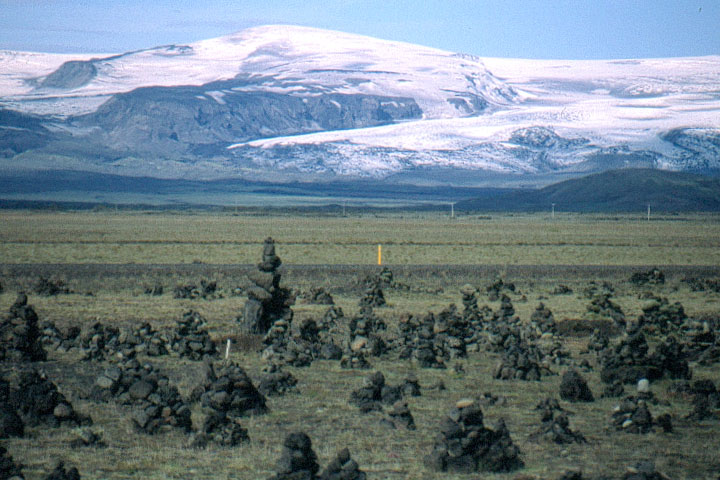Going where the blogs take me and I should add a DISCLAIMER: All the pictures featured on this page belong to their respective owners. If you see your picture featured and don't want it to be, email me with link and I will take it down right away.
Saturday, April 24, 2010
Just a whisper
After a volcanic erruption one often gets articles foretelling doom scenarios to come, yet this time only one has so far appeared, the following
"Earthquakes and their aftershocks, once done, are done.
Volcanoes, however, often trigger long-term and long-distance ill-effects, which history indicates generally far outweigh their immediate rain of death and destruction.
Emanations of particles from the tiniest pinprick in the earth's crust, once lifted high into the skies by an explosive eruption, can wind themselves sinuously and menacingly around the entire planet, and leave all kinds of devastation in their train.
They can disrupt and pollute and poison; they can darken skies and cause devastating changes in the weather; they can and do bring about the abrupt end to the existence of entire populations of animals and people.
.
Earthquakes and tsunamis have never been known to cause extinctions; but volcanoes and asteroid collisions have done so repeatedly – and since the earth is today still peppered with scores of thousands of volcanoes ever yearning to erupt, they and the dramatic long-term effects of their eruptions are in fact far more frequent, far more decisive, and far greater than those that are triggered by any other natural phenomenon on the planet.
And yet, of all the consequences of the truly great volcanoes of the past, the phenomenon of mass extinctions of life must surely be the most profound and world-changing of all.
It is worth remembering that ours is a world essentially made from and by volcanoes.
They are creatures that will continue to do their business over the aeons, quite careless of the fate of the myriad varieties of life that teems beneath them and on their flanks. Including, of course, ours.
Tambora is the most notorious, not least because it was so immense: almost 40 cubic miles of pulverised Sumbawan rock were hurled into the sky, which darkened, cooled and polluted a world that, unlike in Toba's day, was already well populated and widely civilised.
The consequences ranged from the dire – a lowering of temperature that caused frosts in Italy in June and snows in Virginia in July, and the failure of crops in immense swathes across Europe and the Americas – to the frankly ludicrous – Irish migrants, promised better weather in New England, found it on landing to be every bit as grim as the Connemara and Cork they had left, and so either went home, or pressed on in hope to California.
.
And Tambora's eruption had its effects on art also: a gloomy Byron wrote the gloomiest of poems, Darkness ("Morn came and went, and came, and brought no day. And men forgot their passions in the dread/ Of this their desolation . . .");
Mary Shelley, it is said, became so fed up with the rain while visiting Byron in Geneva that she followed suit and wrote her exceptionally gloomy novel Frankenstein.
Only JMW Turner rose more cheerfully to the occasion: the lurid colours of many of his paintings, it is said, owe much to the flaming Tambora sunsets that had half the world astonished, and Turner evidently inspired.
Between two and five major extinction events occur in the world every million years or so.
We humans have not thus far been privileged to observe one of them – hardly surprisingly, since they would probably occur so slowly as to be barely noticeable.
However, with painstaking care, palaeontological evidence is currently being amassed to link sudden and catastrophic changes in world climate, changes that promote such extinction crises, with the known major eruptions of the past, and with what are known as flood basalt events (such as those that have been triggered specifically in the past by eruptions of Eyjafjallajökull and her neighbouring volcano in Iceland, Katla, which is herself currently well overdue for an eruption).
It is a study that opens up a fascinating speculative possibility.
.
For what if the kind of event that we have seen this month, and which caused us all in Europe such commercial inconvenience, is in fact not just a minor volcanic hiccup, but the beginning of an event that causes in time a mass extinction of some form of earthbound life?
And further, since we know from the history books that the massive eruption of Santorini once had the power to destroy one proud part of human society, what if the extinction we might be beginning to see turns out to be what will one day surely occur, and that is the extinction of us?
.
Simon Winchester - Guardian
Subscribe to:
Post Comments (Atom)

No comments:
Post a Comment